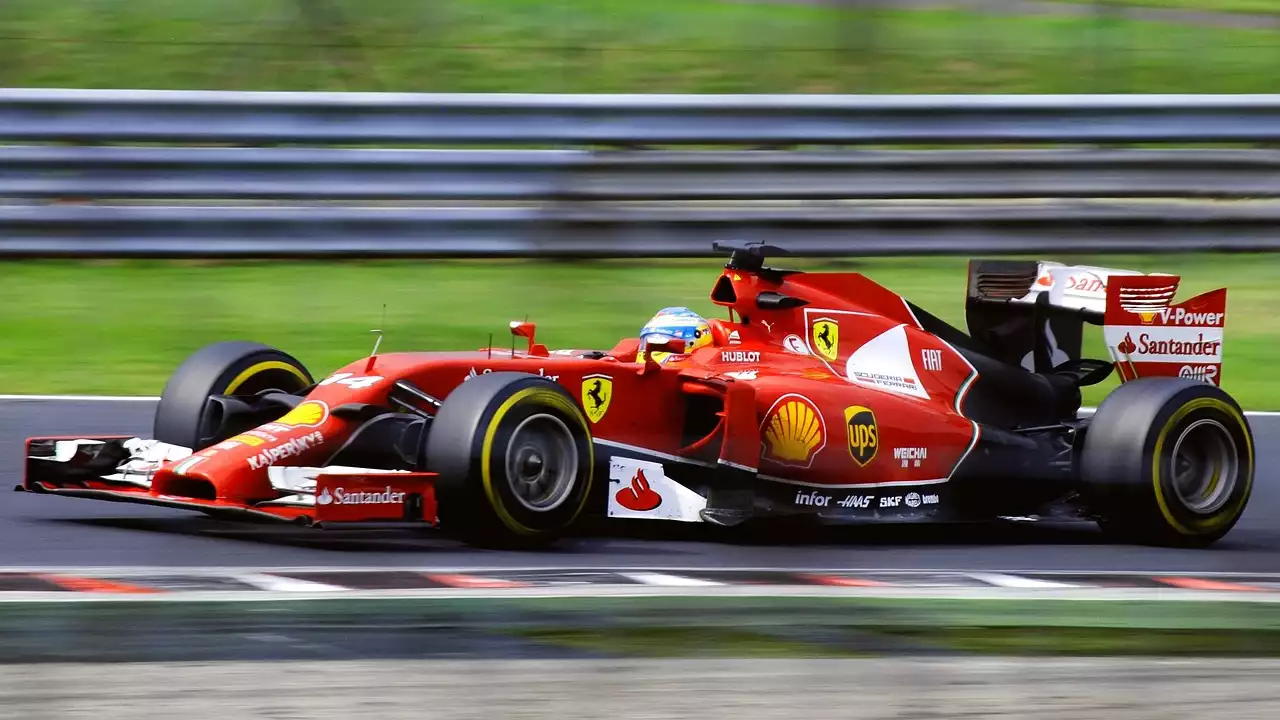The Business of Formula 1
Formula 1 is a global motorsport that attracts millions of viewers from all around the world. It is the most expensive sport in the world, with teams spending hundreds of millions of dollars each season to compete. The sport's popularity is due in part to its high-speed races, but it is also due to the glamour and excitement that surrounds it. The cars themselves are marvels of engineering, capable of reaching speeds of over 200 miles per hour. The races take place on some of the most famous tracks in the world, with the likes of Monaco, Silverstone, and Spa-Francorchamps hosting some of the most prestigious events on the calendar.
Sponsorship in Formula 1
One of the key revenue streams for Formula 1 teams is sponsorship. Companies are willing to pay millions of dollars to have their logos placed on the cars and uniforms of the drivers. This is because Formula 1 is a global sport with a massive audience, and having your company's logo associated with the sport can be a huge boost to your brand. Sponsorship deals can also help to fund the teams themselves, with some companies providing direct financial support to the teams.
Sponsorship deals in Formula 1 can be incredibly lucrative. For example, Red Bull Racing's sponsorship deal with Aston Martin is worth $30 million per year. Mercedes' deal with Petronas is worth even more, at $40 million per year. These deals provide a significant source of income for the teams, and they also help to fund the sport itself.
It's not just the teams that benefit from sponsorship deals, however. The sport's organizers also benefit from these deals, with companies paying millions of dollars to have their logos displayed prominently around the tracks. Formula 1 is a global sport, with races taking place in countries all around the world. This means that there are plenty of opportunities for companies to get involved and promote their brands.
Merchandise Sales in Formula 1
Another key revenue stream for Formula 1 teams is merchandise sales. Fans are willing to pay top dollar for team gear, from hats and t-shirts to jackets and backpacks. Formula 1 teams are well aware of this, and they have capitalized on it by creating their own branded merchandise lines. Fans can buy team gear online or at the track, and this can be a significant source of income for the teams.
Merchandise sales have become increasingly important for Formula 1 teams in recent years. With the rise of e-commerce, it's easier than ever for fans to buy team gear online. This has opened up a whole new market for the teams, and they have been quick to take advantage of it. Some teams have even created their own online stores, making it even easier for fans to buy their gear.
Revenue Streams for Teams in Formula 1
In addition to sponsorship and merchandise sales, there are other revenue streams for Formula 1 teams. Prize money is a significant source of income for teams, with the top teams earning millions of dollars each season. Teams also earn money from their share of the sport's commercial rights, which are sold to broadcasters and sponsors around the world. Finally, teams can also earn money from their own commercial activities, such as partnerships with other companies or the sale of their own products.
It's important to note, however, that not all teams earn the same amount of money. The top teams, such as Mercedes and Ferrari, earn significantly more than the smaller teams. This is due in part to the way that prize money is distributed, with the top teams earning a larger share of the pot.
The Economics of Hosting a Formula 1 Race
Hosting a Formula 1 race is a complex and expensive undertaking. The organizers of the race must pay a fee to Formula 1 in order to host the race, and this fee can be in the tens of millions of dollars. In addition to this, the organizers must also cover the cost of building and maintaining the track, as well as providing security and other services.
Despite the high cost of hosting a Formula 1 race, many countries are willing to do so. This is because the races can bring significant economic benefits to the host country. The races attract large numbers of tourists, who spend money on hotels, restaurants, and other local businesses. The races also generate significant media coverage, which can help to promote the host country to a global audience.
The Impact of COVID-19 on Formula 1 Revenue
The COVID-19 pandemic has had a significant impact on the revenue of Formula 1 teams and organizers. With races cancelled or postponed, teams have lost out on prize money and sponsorship deals. Merchandise sales have also been affected, with many fans unable to attend races or buy team gear.
The pandemic has also affected the economics of hosting a Formula 1 race. With travel restrictions in place, it's been difficult for races to take place in some countries. This has led to a reshuffling of the calendar, with races taking place in countries that have been able to control the spread of the virus.
Successful Examples of Sponsorship and Merchandise in Formula 1
There have been many successful examples of sponsorship and merchandise in Formula 1 over the years. One notable example is the partnership between Red Bull Racing and Aston Martin. This deal has helped to fund the team and has also helped to promote Aston Martin's brand to a global audience.
Another successful example is the Mercedes-Petronas partnership. This deal has been worth millions of dollars to both companies and has helped to establish Mercedes as one of the dominant teams in the sport.
In terms of merchandise, the Ferrari brand is one of the most successful in the sport. Fans are willing to pay top dollar for Ferrari gear, and the team has capitalized on this by creating a wide range of branded products.
Challenges and Risks in Formula 1 Revenue
Despite the many revenue streams available to Formula 1 teams and organizers, there are also challenges and risks that must be considered. One major risk is the cost of competing in the sport. Teams must spend hundreds of millions of dollars each season to compete, and this can be a significant financial burden.
Another risk is the dependence on sponsorship and merchandise sales. If a team is unable to secure a sponsorship deal or if merchandise sales decline, it can have a significant impact on their finances. This is particularly true for smaller teams, who may not have the same resources as the larger teams.
Future Trends in Formula 1 Revenue Generation
Looking to the future, there are several trends that are likely to shape the way that Formula 1 generates revenue. One trend is the increasing importance of digital media. As more fans watch races online, teams and organizers will need to find new ways to monetize this audience. This could include partnerships with digital platforms or the creation of new online products.
Another trend is the growing importance of sustainability. With concerns about climate change and environmental impact, Formula 1 will need to find new ways to reduce its carbon footprint. This could include the use of hybrid engines or the adoption of more sustainable practices at the races themselves.










